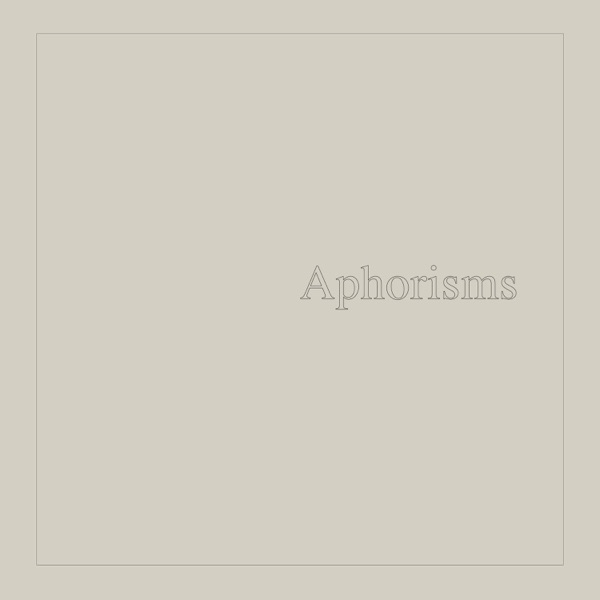Description
#grahamlambkin #vinyl #vinylrecords
Graham Lambkin, frontman of Shadow Ring, returns with his first proper album in seven years, offering listeners an extended “transatlantic meditation” in the form of ‘Aphorisms.’ This remarkable release delves into Lambkin’s introspective exploration of his move back to the UK after nearly two decades in the USA. Through delicate solo piano compositions, Lambkin captures a sense of fragility and hypnotic beauty.
Approaching the piano with his trademark idiosyncratic style, Lambkin embraces its cultural weight and the preconceptions of his listeners. Yet, he maintains an anarchic nonchalance, striking arrhythmically at its guts or capturing the slamming down of a broken pedal. His compositions transcend discernible phrases or motifs, offering a unique musical language.
Recorded between New York and East London early last year, ‘Aphorisms’ serves as a reflection on Lambkin’s decision to return to a post-Brexit Britain after spending two decades on the other side of the pond. In 2001, Lambkin had recorded ‘Lindus’ with Shadow Ring between Kent and Florida, marking his initial emigration. ‘Aphorisms’ acts as its mirror image, presenting a wide-angled view of displacement from the opposite perspective.
The album’s sonic landscape intertwines two pianos, recorded separately but deliberately overlaid to capture the essence of the rooms that have influenced Lambkin’s writing over the years. One piano resided in the Blank Forms studio in New York, while the other occupied Lambkin’s London home. The interplay of these instruments creates a captivating blend that showcases the significance of the spaces themselves. While the piano provides a focal point, it is the reverberation and empty, open air that truly shape the sound.
Each track on ‘Aphorisms’ reveals a unique sonic journey. In “Slave Painting,” key strokes blend into a faint melodic drone, enveloped by room tones, garbled speech, and breathy improvisations. “Limp Test” explores the character of the piano’s wooden body and the resounding sound it produces in space when struck, amplifying Lambkin’s garbled instructions. The generous “Trilogy of Embers” introduces samples to animate an illusory ensemble, intertwining cinematic strings, jumbled radio static, and Lambkin’s musings and freeform expressions. The piano resurfaces, carried away as if floating out to sea, perhaps destined for another country, embodying the theme of relocation.
The album’s second disc delves deeper into Lambkin’s artistic exploration. The memorable opener, “Porpitus,” merges wooden creaks with unstable choral drones and unsettling robotic whispers. “Cannon Hill” immerses listeners in a grim and horror-struck atmosphere, extracting dread from thrilling piano vamps and spine-tingling footstep recordings.
However, it is the lengthy title track that serves as the contextual centerpiece of the album. Over nearly 20 minutes, Lambkin transforms the piano into a drumkit and a set of power tools, creating drones and scratches that challenge conventional musical boundaries. The track culminates in a sinkhole spiral of jazzy pseudo-brass, tumble-dried drums, and elegiac musicbox tones that echo into nothingness. It encapsulates Lambkin’s transformative




